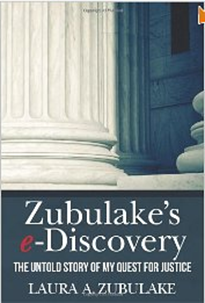eDiscovery Trends: Florida Supreme Court Adopts New eDiscovery Rule Amendments

As we discussed last October, the state of Florida has been working to adopt new rules regarding handling of eDiscovery. Earlier this summer, the Supreme Court of Florida approved eDiscovery rule amendments that were proposed by the Florida Bar’s Civil Procedure Rules Standing Committee. The amendments to address Electronically Stored Information (ESI) generally follow the 2006 amendments to the Federal Rules of Civil Procedure, are entirely contained within existing Rules 1.200, 1.201, 1.280, 1.340, 1.350, 1.380 and 1.410 of the Florida Rules of Civil Procedure and went into effect this past Saturday, September 1.
Here is a summary of the rules changes related to eDiscovery and handling of ESI:
- Rule 1.200 (Pretrial Procedure): Amended to allow the trial court to consider various issues (such as the possibility of obtaining admissions of fact, the voluntary exchange of documents and ESI, and stipulations regarding the authenticity of documents and ESI) related to eDiscovery during a pretrial conference.
- Rule 1.201 (Complex Litigation): Amended to require the parties in a complex civil case to explore the possibility of reaching an agreement regarding preservation and the form of production of ESI prior to the start of discovery.
- Rule 1.280 (General Provisions Governing Discovery): Amended to now expressly allow for the discovery of ESI. The amendments also add a new subsection (d) which limits eDiscovery for ESI that is not reasonably accessible or overly burdensome or expensive and allows for the court to order the requesting party to bear some or all of the expenses of complying with the discovery request.
- Rule 1.340 (Interrogatories to Parties): Amended to expressly allow for the production of electronically stored information as both an answer to an Interrogatory or Response to a Request to Produce (in the form in which it is ordinarily maintained or in a reasonably usable form).
- Rule 1.350 (Production of Documents and Things and Entry Upon Land for Inspection of Other Purposes): Like Rule 1.340, it has been amended to expressly allow for the production of electronically stored information as both an answer to an Interrogatory or Response to a Request to Produce (in the form in which it is ordinarily maintained or in a reasonably usable form).
- Rule 1.380 (Failure to Make Discovery; Sanctions): Amended to require that, absent exceptional circumstances, the court is not permitted to impose sanctions on a party for failing to provide ESI if it was lost as a result of the routine good faith operation of the electronic information system.
- Rule 1.410 (Subpoena): Amended to allow ESI to be requested via subpoena. Like Rule 1.280, it limits eDiscovery for ESI that is not reasonably accessible or overly burdensome or expensive and allows for the court to order the requesting party to bear some or all of the expenses of complying with the discovery request.
So, what do you think? Where does your state stand in adopting rules for handling eDiscovery? Please share any comments you might have or if you’d like to know more about a particular topic.
Disclaimer: The views represented herein are exclusively the views of the author, and do not necessarily represent the views held by CloudNine Discovery. eDiscoveryDaily is made available by CloudNine Discovery solely for educational purposes to provide general information about general eDiscovery principles and not to provide specific legal advice applicable to any particular circumstance. eDiscoveryDaily should not be used as a substitute for competent legal advice from a lawyer you have retained and who has agreed to represent you.



